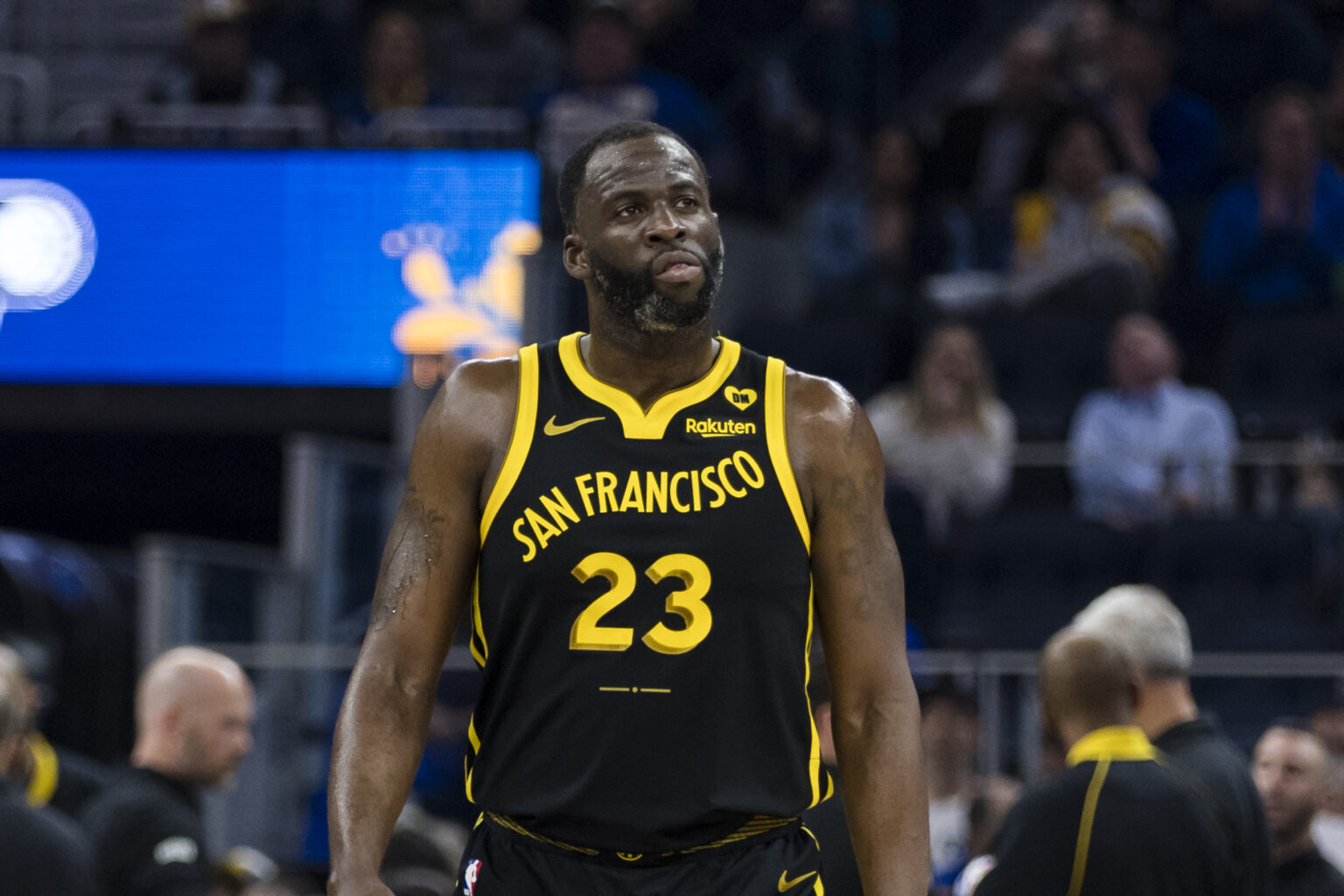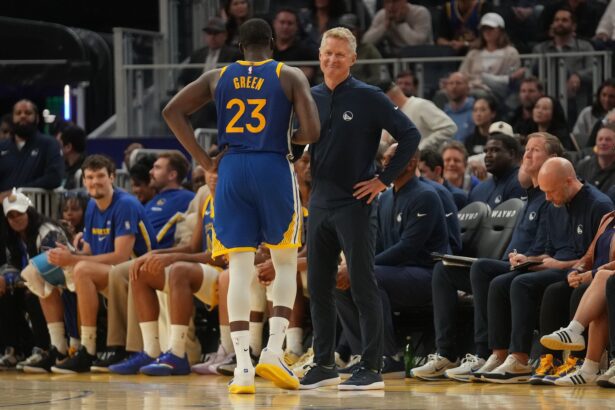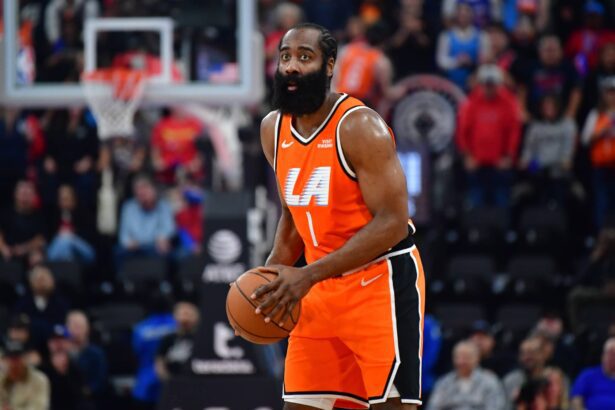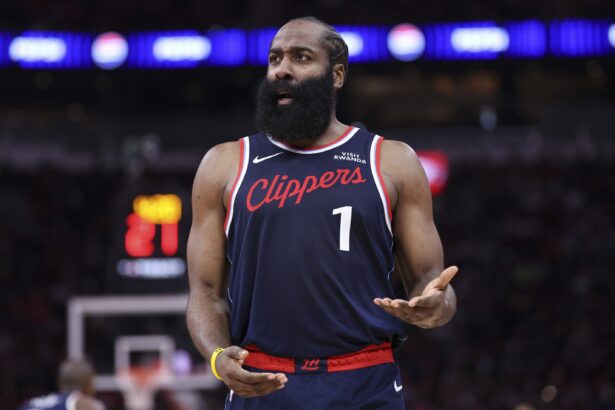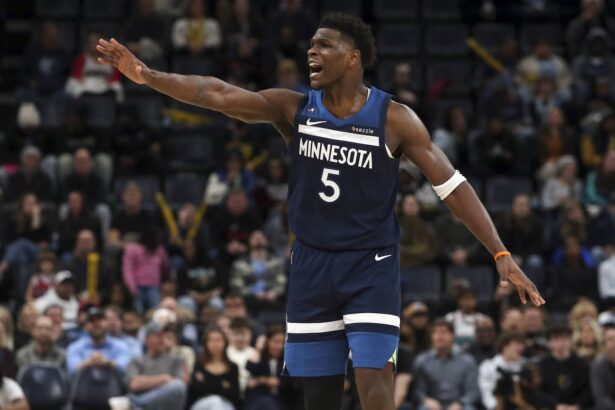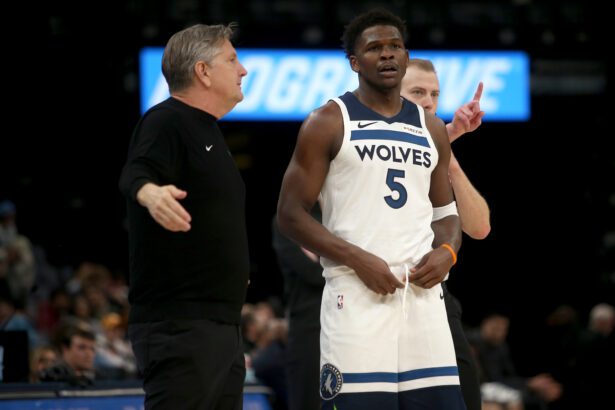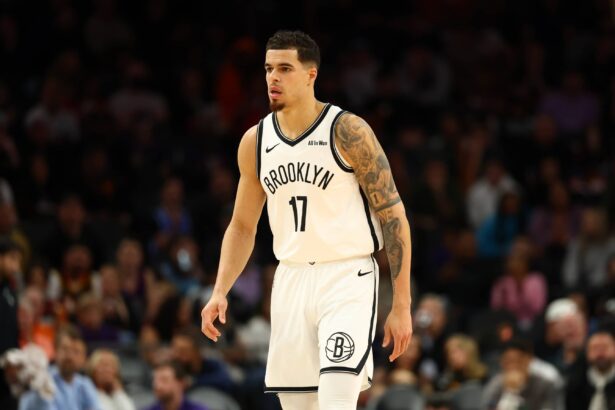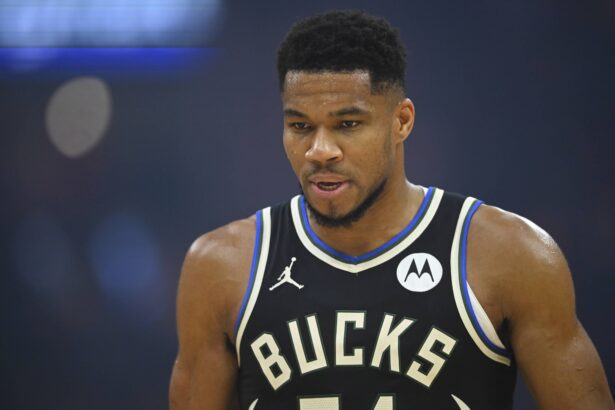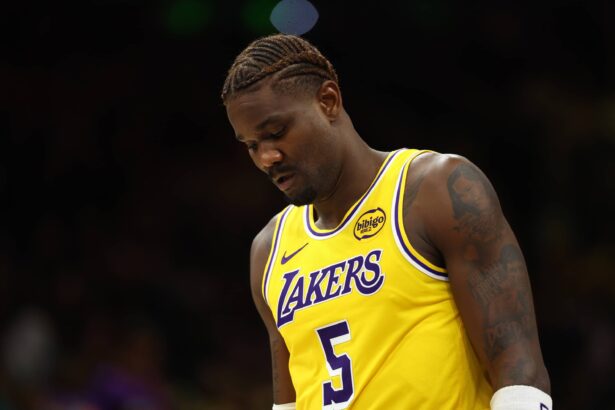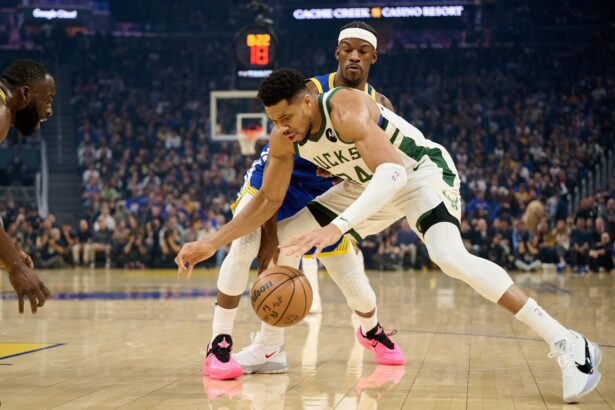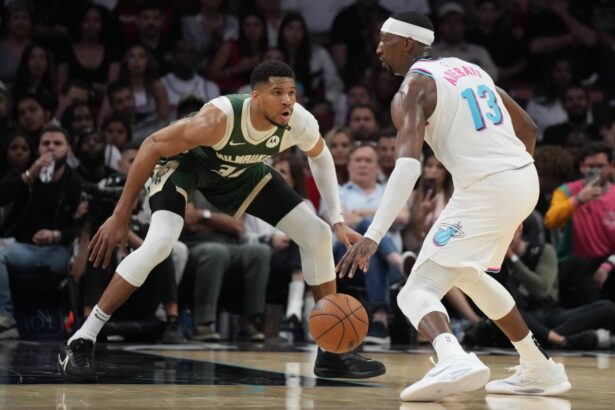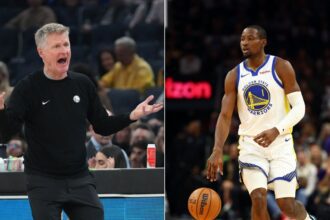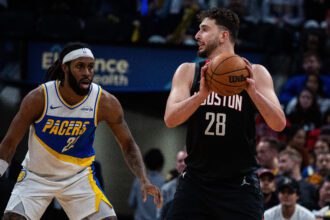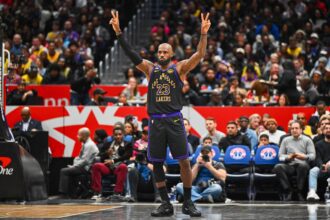Draymond Green shared a controversial yet intriguing perspective during his appearance on the ‘Jimmy Kimmel Show’. Green asserted that losing in the NBA Finals is worse than not making the playoffs at all. This statement sheds light on the emotional and physical toll of reaching the Finals only to fall short.
“I’d rather not be in the playoffs at all. But look at this, Jimmy. You say I get about a 17-week summer. If you go to the Finals, it’s nine. So if you go to the finals and lose, you get the same nine weeks.”
“And if I get the same nine weeks and I lose, no one remembers I lost. So I’m gonna try to take a small break because you’re exhausted when it ends Then everyone’s expecting you to get better come back in and better shape.”
“It’s like dude I just had the same seven weeks off that Boston had now on the flip side you got the championship team… They’re gonna get a pass for two weeks. They get to be complete idiots, drink whatever they want, wherever they want, whenever they want right?”
“Then they come back, not in great shape, but everybody’s like, oh, they won the championship, they’re tired. But remember, I had the same nine weeks they had. And so it’s the absolute worst thing you can do losing an NBA Final.”
“So the guys that get there and act like, oh man, it was such a great experience, they’re lying to you. It was the worst experience ever.” (1:46)
Green explained that making it to the NBA Finals drastically shortens a player’s off-season. Typically, players get about a 17-week summer break, but this is slashed to nine weeks if they reach the Finals. For Green, this reduced break time is a significant drawback. The physical exhaustion from a deep playoff run is immense, and the mental fatigue of falling just short of a championship makes it even more grueling.
Using the Boston Celtics as an example, Green noted that the team that loses in the finals gets the same nine weeks off as the champions. However, the losing team doesn’t receive the same accolades or the mental relief that comes with winning. Instead, they’re expected to return in better shape and ready to improve for the next season.
This expectation adds pressure and diminishes the already short recovery period. The champions, on the other hand, get a pass for their initial off-season indulgences. They can afford to celebrate and relax, knowing they have achieved the pinnacle of success.
Green’s point is that the emotional strain of losing in the Finals is compounded by the physical demands and the lack of adequate recovery time. The losing team ends up with the worst of both worlds: a short off-season without the joy and recognition of winning. He emphasized that players who claim to cherish the experience of reaching the Finals, despite losing, are not being entirely truthful.
According to Green, losing at that stage is the worst experience imaginable because it feels like all the effort and sacrifice throughout the season have gone to waste.
Furthermore, Green highlighted the societal expectations placed on athletes. The champions return as heroes, with the luxury to recover at their own pace. Conversely, the runners-up are expected to come back stronger, which adds another layer of pressure. This difference in treatment underscores why Green would rather miss the playoffs than endure the agony of losing in the Finals.
For Green, the psychological blow of coming so close yet falling short, coupled with the demanding off-season expectations, makes losing in the finals far worse than missing the playoffs entirely. His perspective offers a glimpse into the intense world of professional basketball, where the margins between triumph and despair are razor-thin, and the consequences of falling short are profound.
The World Remembers Winners More Than Losers
The world remembers winners more than losers, a truth that pervades many aspects of life, especially in sports. This reality is particularly evident in how basketball legends like LeBron James and Michael Jordan are perceived.
LeBron James, despite his incredible career achievements, often faces criticism for his 4-6 record in the NBA Finals. People frequently point out his six finals losses when debating his place in the pantheon of basketball greatness.
This scrutiny starkly contrasts with Michael Jordan’s pristine 6-0 Finals record, which bolsters Jordan’s claim as the Greatest of All Time (GOAT). Jordan’s unblemished success in the Finals overshadows LeBron’s more frequent, but less uniformly successful, appearances.
This focus on winning isn’t limited to basketball. It’s a societal norm: the world cherishes and celebrates winners while quickly forgetting those who fall short. Cinderella stories and great comebacks are celebrated briefly, but the lasting legacy belongs to those who finish first. Winning is what etches names in history books and cement legacies.
The world inherently favors winners. This bias shapes our collective memory and cultural narratives. While the journey, effort, and resilience are important, the ultimate measure of success remains winning. It’s a reality that athletes, entrepreneurs, and leaders must grapple with as they strive to achieve their goals and leave their mark on history.
Thank you for being a valued reader of Fadeaway World. If you liked this article, please consider following us on Google News. We really appreciate your support.

